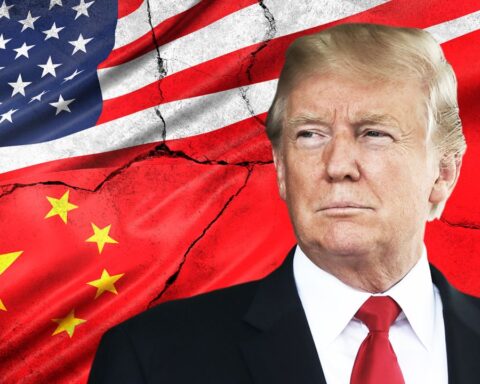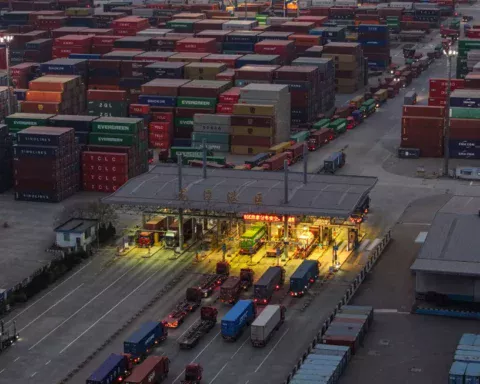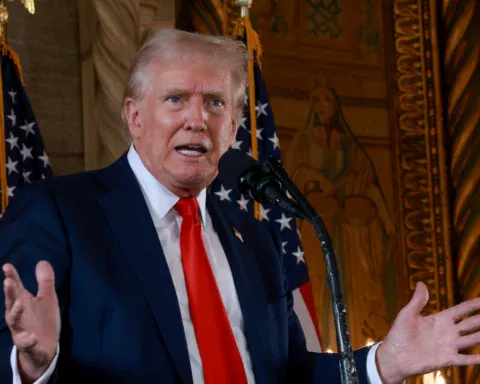SAN FRANCISCO — China’s economy will increasingly rely on state investment, high-tech development and domestic consumption – with less input from its past staple of export manufacturing – as it stands to overtake the United States in the coming decade, analysts predict.
China’s GDP should grow 5.7% per year through 2025 and then 4.7% annually until 2030, British consultancy Centre for Economics and Business Research (CEBR) forecasts. Its forecast says that China, now the world’s second-largest economy, would overtake the No. 1-ranked U.S. economy by 2030. Credit insurance firm Euler Hermes made a similar forecast.
Chinese leaders have pushed over the past decade to rely more on value-added services over traditional factory exports, state media have said. The Sino-U.S. trade dispute and early 2020 workplace closures due to COVID-19 have added pressure on manufacturing.
Reducing factory output in China, foreign multinationals have been expanding outside China, targeting places such as Vietnam to avoid rising wages and environmental compliance costs. By offshoring in multiple countries they hope to head off any repeat of China’s early 2020 COVID-19 lockdowns that shut down factories.
China’s economy totaled $15.92 trillion in 2020, and market research firm IHS Markit estimates that it reached $18 trillion last year on export manufacturing growth and capital for new projects. The U.S. economy reached about $23 trillion last year, the market research firm said.
State investment
The country that’s already known for fast economic growth over the past 20 years would see the state take more control over key sectors after intervening in several, including the internet, in 2021, economists expect.
“Beijing has the funds and the unfettered domestic political power to use China’s large public treasury to make strategic investments in the service of the leadership’s national and global objectives,” said Denny Roy, senior fellow at the East-West Center think tank in Honolulu.
China scored 2.98 in 2018, up from 2.45 eight years earlier and approaching about three times the world average, on the Organisation for Economic Co-operation Development policy forum’s Direct Control Over Enterprises index.
That means the government’s direct control over enterprises “well exceeded the open economy average” and “reflects China’s increasing emphasis on the role of the state in the economy under Xi Jinping,” the think tank Atlantic Council says in its October report China Pathfinder: Annual Scorecard .
Growth in tech hardware
Chinese leaders will probably prioritize tech, especially hardware that does not require constant innovation, as a growth engine, economists say.
State intervention in the internet sector won’t hobble expansion in semiconductors and infrastructure software, said Zennon Kapron, founder and director of the Shanghai-based financial industry research firm Kapronasia.
“If the country does become self-sufficient in terms of technology and then is able to sell and export those products and services that are based on the technology, then that would be a huge bump to its economy, because [that] is a key driver certainly of the U.S. GDP now,” Kapron said.
The U.S. economy will keep growing but without spurts through 2030, Kapron predicts.
China has a “huge base of engineers,” albeit less creativity than it needs to foster the “zany ideas” that drive development of new technology, said Douglas McWilliams, founder and executive deputy chairman of CEBR.
Consumer spending
Domestic spending has driven most of China’s economic growth before 2021 as the country reduced its exposure to the world in view of the Sino-U.S. trade dispute, McKinsey & Co. says in its China consumer report 2021. Supply chains have “matured and localized, and its innovation capabilities were enhanced” in turn, McKinsey & Co says.
That trend is likely to continue despite hits to income under lockdowns during the first year of COVID-19, analysts say. China’s population exceeds that of the United States by 3.5 times, though American consumers are wealthier on average.
“In the past five years, domestic consumption has … become a more significant growth driver as China’s domestic consumer market has grown dramatically in size,” said Rajiv Biswas, Asia-Pacific chief economist with IHS Markit.
Beijing’s leadership “aims to create more than 11 million new urban jobs and expand domestic demand and effective investment,” the official Xinhua News Agency said in mid-2021. Those measures, it said, “are expected to put the economy firmly back to pre-pandemic vibrancy.”
What if China overtakes US economy?
Status as the world’s largest economy does not confer any automatic advantages over others, economists said, but countries dependent on the Chinese economy would take note.
“There is no gold medal or anything like that,” CEBR’s McWilliams told VOA. “But when you’ve got more money to spend, you do have the ability to influence things, and China will have that ability to influence things.”
China would be better placed, he said, to advance its Belt and Road Initiative, a 9-year-old effort aimed at building land and sea trade routes through Asia, Europe and Africa in the form of infrastructure projects and investments.
Officials in Beijing are already leveraging their economy in disputes with other countries, said Roy of the East-West Center. China vies with four Southeast Asian governments over maritime sovereignty, contests a group of islets with Japan and has gotten into territorial standoffs with India since 2017.
“The result of that expectation (China surpassing the United States economically) has been a bolder PRC (People’s Republic of China) foreign policy that seeks to settle regional disputes in China’s favor and to de-legitimize U.S. regional and global leadership under the assumption that China is destined to set the new rules of international relations,” Roy said.
Ralph Jennings






